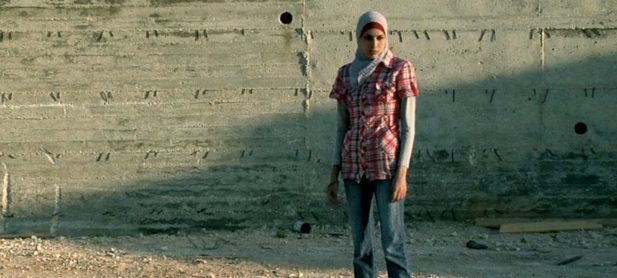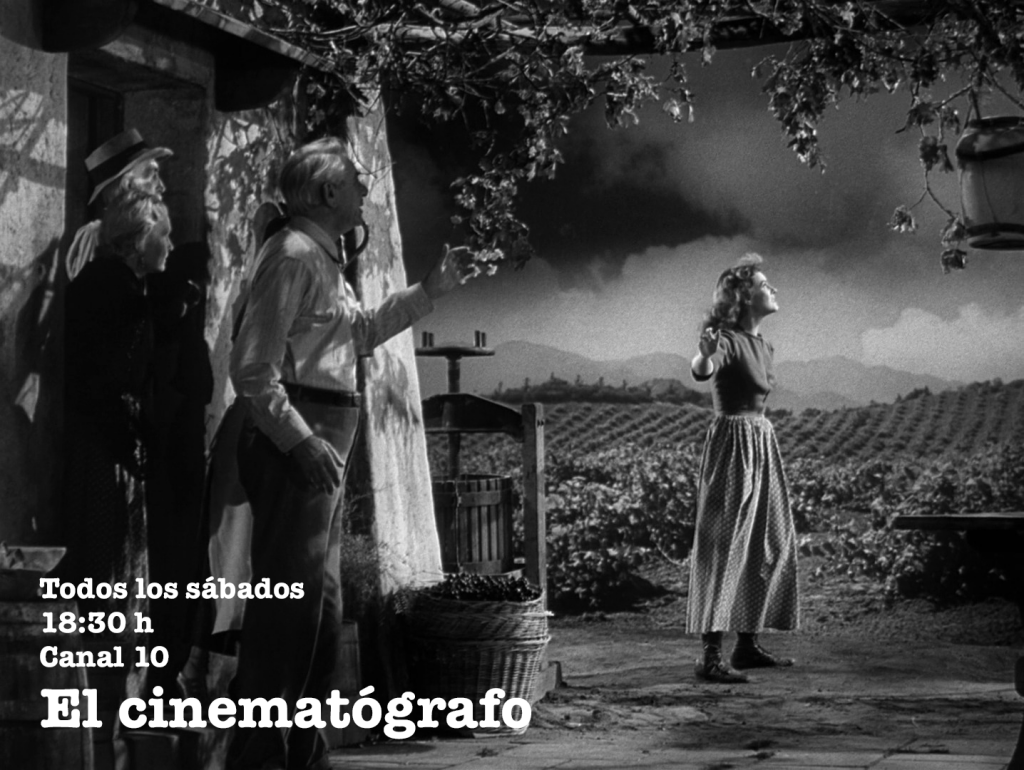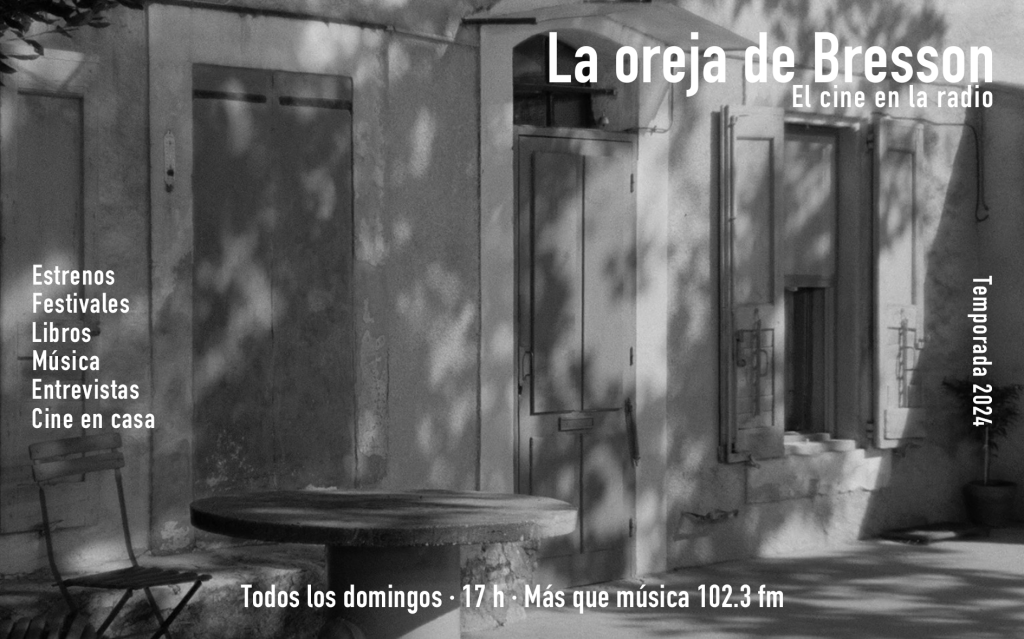
VIENNALE 2013: TOMORROW VS SORROW
By Alexandra Zawia
My history teacher in high school always had a young body and an old face. I can’t say the same of myself today, because I’ve never been as fit as her. She was also our Sports instructor, so I guessed her physical apperance made kind of philosophical sense. I spent the Sports lessons by avoiding to participate in any exercise, watching people running in circles instead, and waiting for the time to pass. In her history lessons, I would sit in the front row. Not because I was so eager, but because that was where the chance of her seeing me eat from under my table was the slightest – that much I had learned from calculating angles. She never sat on the chair behind the teacher’s desk, but always on one side of the desk itself, facing the crowd. Of course, she held her balance easily, and one day, she raised her index finger, and asked: «When does history start?»
I remember not answering (probably a granola bar in my mouth), and I can’t recall what people said, either. She said: «History starts now», and she bent her index finger, forming a hook. «This is already history», she said, and that was maybe the first time I was really fully aware of holding on to the present, while realizing that there is no location in time without memory, at all.
Both, Michael Wahrmann’s and Ahmad Natche’s films, Avanti Popolo and Two Meters of This Land, are such «historical hooks» which, for me, created the same sensation of being anchored in a present while trying to come to terms with the question of movement within memory: When should we move on, and if … not, where to? It’s a question also of coming to terms with a historical, cultural, political, and personal past in order to constitute – or, if the coping fails: to prohibit – a future.
Natche was born in 1974 in Madrid, and he has a Palestinian father; 34-year-old Wahrmann was born in Uruguay, but spent most of his life in Israel before he moved to São Paulo, where he lives and works now. Both films are informed by the multi-cultural identity of their directors, and the historical and political implications the countries they are related to bring about. Whereas Natche, in form and dialogue, finds sublime ways of speaking about denied, desired and defined territory in Palestina, Wahrmann’s has «the human individual» at its (and at Brazil’s) core, as the still-pulsing remnant of when everything else has crumbled: dictatorships, systems, causes, and, maybe, collective and personal memory the like.
In its major strand, Natche’s film accompanies the preparations for a music festival in Ramallah, close to the boarder of Jerusalem, organized by a group of predominantly young people. In a conceptual decision, Natche quite seamlessly blends fictional elements with a documental realism, grounding the amateur actors’ scripted dialogues in what seems an actual situation. We «overhear» conversations between the people involved, between a Palestinian technician with an Asian photographer who lived in Egypt, between a journalist and the festival director, between the host and the organizers. Thus providing «fake» personal insights, those dialogues weave into an implied discourse about mutual understanding, narrative exchange, and the «Palestinian situation» in the very present day.
In Wahrmann’s film, we encounter an old father (played by recently deceased Cinema Novo icon Carlos Reichenbach) in his small, cluttered, brownishly colored, dim-lit, and probably muggy living room with a low ceiling. The paper comes off the slightly skewed walls which are looming in to a worn-out sofa, a chair, and a small table, only reluctantly allowing a staircase to wind up on one side. Accompanied by his unfittingly lively dog called «Whale», the stoic man is waiting for the return of his son, a Brazilian «desaparecido» of the 1970ies dictatorship, who never came back from the USSR, but the father is still keeping his room upstairs. When his other son, André (André Gatti) knocks on the door after his wife threw him out, the father tenderly pads his couch, as if it were his only soldier in a silent war against the army of change: Avanti, popolo!? – No way: «You will stay right here», he tells André who has to accept not to «climb into the past» at first. Very limited in space and movement now, André settles in within this ironically sitcom-gone-sad framed fixed shot, which will remain fixed throughout the film, like a tunnel-vision. Quite right: Who is the suppressor now?
It isn’t only then, that Wahrmann’s intended interplay of inner non-movements vs. outward (attempts of) mobilization, and the proposed reciprocity of audience, director, protagonists, and themes becomes evident. Wahrmann opens his film with an aimless search, when (again in a fixed shot from inside a car, a static frame on wheels, that is), we are carried through the streets of a city at night, in a beautiful composition of lantern lights and music from a culturally dedicated radio station (Wahrmann’s voice of the host), playing songs about various Latin American national, historical myths. Apparently we don’t know where we are (passively) going until the car (Wahrmann driving), encounters something that makes it stop, and we – along with the director – discover that we were looking for a beginning to talk about endings now.
Natche, as well, starts from a dead end situation, but breaks free for a new start, and a new tomorrow.
HIs formal compositions are defined by lines, by corners facing an open, and it is in such also that he seeks to break with circular movements – formally and figuratively alike.
Wahrmann may mourn, where Natche may anticipate, but both films talk about the possible recuperation of personal power within the «course of history» primarily via their form and their cinematic means, from which other themes derive. Both deny the «big topic» to take up all the space in their films, which, in itself, is a political decision, of course.
In a hilarious sequence of Avanti Popolo, for example, a Super 8 film about … Super 8 films … is being spooled back in actual «real time». Two men – one of them Marcos Bertoni (the real director of that Super 8, and the founder and only member of a movement called «Dogme 2002) and the other Wahrmann’s considerably impatient actor André, converse about the legitimation of Super 8 nowadays, which turns into a conversation about the legitimation of (cinematic) manifestos at all.
Dogme 2002’s key «rule» is that nothing can be shot: It must reconceptualise previous film footage (through means of dubbing). Somewhere along the same principle, the Super 8 film we see is a result of the integration of the original material into Wahrmann’s film so as to form a hybrid, which, consequently, does not «belong» anymore to neither of the directors.
Thus letting his actual film step back behind something that emerged from an «intruder», is, in fact, a gesture of generous anarchy from Wahrmann, and it says a great deal about the end of systems, even the film’s own.
In a different hybrid use of archive material, Natche, in a strand preceding the festival preparations, shows a Palestinian TV editor and a French woman trying to select pictures from a collection of war photographs, to prepare for a broadcast. It’s a magnificent «live» take on recounting history, when Natche opens his film with their voice over only about the various pictures we see. Whereas the French woman has her distinct visual interpretations but is curious to learn, the editor is evaluating the pictures clearly with a cause in mind.
Wahrmann poses the question of what we see vs. what we think, of what is real or what is not especially in the context of memory, and actual blindness: The father lost his eyesight some time ago, which is the reason why he never opens the only window, and why, when Whale’s ball falls into the gully, even the neighbor with one glass eye might retrieve it quicker.
Facing ghosts from the pasts, how blind do we become? Do we remember things «correctly», and is that even possible? In an attempt to access his father’s but also his own past, André sets up an old projector to show his brother’s Super 8 films he discovered amidst the clutter. His brother only becomes visible via projections on a deranged wall, just like he is still alive only in their deranged memory as well.
As much as both films talk about the ways or impossibilities to embrace the present, in order to have a future, their present tense is constituted of waiting. Neither Natche nor Wahrmann try to establish possible personal identification with the viewer. They remain distant, observing, yet not indifferent. And quite plausibly so: In a time when the future has not become the past yet, what is there to be nostalgic about? People wait. They wait for a concert, and for time to pass. Some use that time. Most of them try to survive. People wait in caves, like one survivor of the Nakba (Israel’s 1948 ethnic cleansing of Palestine) recounts in a sequence which in Natche’s film integrates as a documental element. Also, people wait for pain to be over, and for wounds to heal. Sometimes up to a point when the waiting has become their only reason to live.
«Two meters of this land are now enough for me», Palestinian national poet Mahmud Darwish wrote before his death in 2008. Enough for a human body when it’s resting in a coffin. More than once in Natche’s film, we see people measure the space they have. Organizers take two big steps to mark a band’s position on stage, for example, or walk to measure the area for the awaited audience. By measuring the soil, they literally claim territory then, and in skillful compositions, Natche fathoms the space for the people we see and for those we don’t see (yet).
In a key scene of Two Meters of This Land, a young TV reporter and a print journalist start talking about the different nature of news reports and poetry. «The journalist has to compress and break down large things to small units, whereas the poet starts from the small to say something that exceeds not only size but also time. That will still be relevant when the news report is old», they conclude.
This is what both films achieve as well: Minimal in form, they create a maximum of implications and layers, themes, motifs.
Wahrmann follows his radical, anarchic and bitter-sweet ironic approach to his own film until the end, when we hear him sing the Communist hymn «Avanti Popolo» all by himself. And I guess, it’s like that: Finally, it all comes down to what remains of you, and what you sing, when you don’t feel like singing.
Alexandra Zawia / Copyleft 2013
Viennale screenings:
«Avanti Popolo» :: Metro Sa, 26. Okt. 11:00 | Kino Schwarzenbergplatz Do, 31. Okt. 18:00
«Two Meters of This Land» :: Kino Schwarzenbergplatz So, 27. Okt. 18:00 | Metro Do, 31. Okt. 18:30









*** This review may contain spoilers ***
It may be a stereotype, but one hears the word Palestinian, immediately think wars, suffering, killings and other nasty things. However, this film contributes very good way to break these prejudices. The director’s ability to convey a friendly atmosphere, a harmonious coexistence between members of this people, is remarkable. He sees the characters fulfilling their roles without twitching or fighting. Natche manages to convey a complex yet lovable of a people most of the time in the news for his troubles. Much of the secret is in dialogs care, which have as one of its main attractions, surprise and interest that shows each partner, for what it says other, their eagerness to learn the life experiences of others. The prominent role of women, evidenced from the first sequence, not with lofty speeches, but their presence in various job roles. From the TV host, who seeks photos for your program, to the journalism student who tries to capture evidence of the event, through the dancers, many women who take active roles. The exterior shots filmed in is another strong point of the film. A ubiquitous wind, caressing the faces, hair and clothing of girls and boys waiting patients for trials of dance and the beginning of the festival, is portrayed in delinquent fixed medium shots, and makes this simple experience an event filled with joy. The history of this suffering people is not absent in the film, but Natche shows his talent to portray the scenes allusive, with originality. From the very beginning of the film, the theme of war is present, when a succession of black and white photos of Palestinians in uniform, men and women, is bringing forth the past. Then, the testimony of the woman, who relates with resignation but not melodramatic gestures, nightmares why you had to spend from earliest childhood. Also when some young people remember the difficulty imposed by the Israelis to move, making Ramallah and other Palestinian cities, true ghettos.